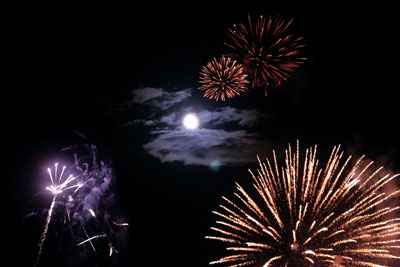All Nonfiction
- Bullying
- Books
- Academic
- Author Interviews
- Celebrity interviews
- College Articles
- College Essays
- Educator of the Year
- Heroes
- Interviews
- Memoir
- Personal Experience
- Sports
- Travel & Culture
All Opinions
- Bullying
- Current Events / Politics
- Discrimination
- Drugs / Alcohol / Smoking
- Entertainment / Celebrities
- Environment
- Love / Relationships
- Movies / Music / TV
- Pop Culture / Trends
- School / College
- Social Issues / Civics
- Spirituality / Religion
- Sports / Hobbies
All Hot Topics
- Bullying
- Community Service
- Environment
- Health
- Letters to the Editor
- Pride & Prejudice
- What Matters
- Back
Summer Guide
- Program Links
- Program Reviews
- Back
College Guide
- College Links
- College Reviews
- College Essays
- College Articles
- Back
Tips for succeeding in National History Day
Tips for succeeding in National History Day
Preparation:
• Be sure to pick a topic that interests you so the research will not feel like a chore
• Finding a variety of sources will be extremely beneficial (ex: books, websites, newspaper articles, and interviews; do not use only e-sources).
• Always annotate sources along the way. Do not save annotations for later!
• When annotating sources, be sure to include critical analysis.
• Whatever project type you choose, whether it's an exhibit, paper, documentary, performance, or website, always begin to finalize your work in advance. I suggest at least a month for the project itself; the actual research takes multiple months. Do not procrastinate!
• Although it is difficult to accumulate primary sources for certain topics, it is very important to have at least a couple.
• Throughout your research, always make sure your topic relates to the theme of that year.
• The more sources you have, the better.
• Deciding on a topic a year in advance is very helpful because this will allow more time for research.
Competition:
• Remember to bring your bibliography to the competition! Five copies are needed: one for you, one for your teacher, and three for the judges.
• For exhibits, performances, and documentaries: when being interviewed, speak in a clear and concise manner. You know your topic because you have been researching it, but make sure the judges know that you understand the topic, too.
• When answering questions, always incorporate analysis to display a deeper understanding.
• Be confident and amiable toward the judges to make the interview a pleasant experience for both you and the judges.
• If possible, make a personal connection with your topic; that can work in your favor.
•
And most importantly, have fun! This project is not about whether you win or lose, it is about how you play the game.

Similar Articles
JOIN THE DISCUSSION
This article has 0 comments.
